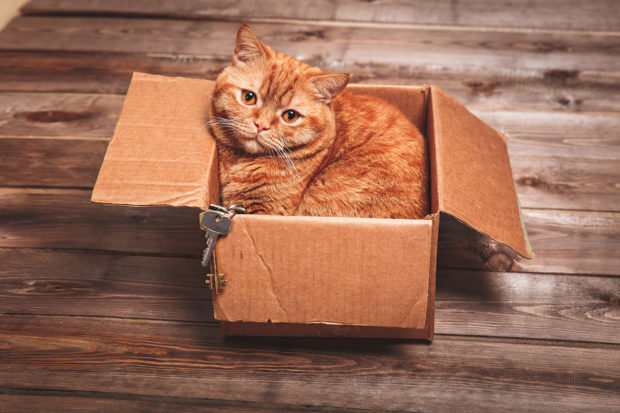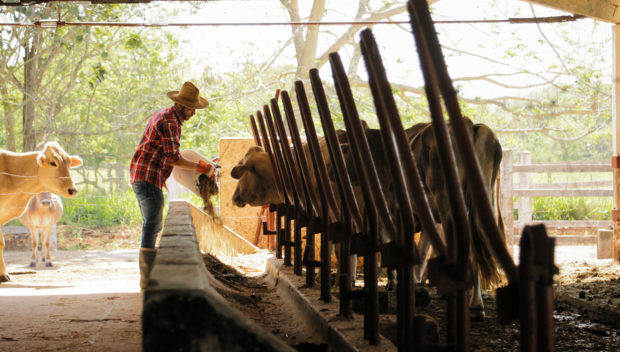Your pet is a member of your family, but some state governments don’t see it that way. Each state has their own regulations for what pets can be brought in and which animals can be transported in and out. It’s just one more hoop you have to jump through when you’re moving.
If you’re a pet owner who’s moving to Denver – or anywhere else in Colorado for that matter – there are a few rules you need to know before loading everything up.
DOMESTIC ANIMALS IN COLORADO
The official definition of a domestic animal in Colorado is any animals which through long association with humans have been bred to a degree which has resulted in genetic changes affecting the color, temperament and conformation, or other attributes of the species to an extent that makes them unique and distinguishable from wild individuals of their species.
In Colorado, there are a wide range of animals that fall under the umbrella of this definition. Currently, there are 33 animals that are considered domestic. You can find the entire list in section 1103 Section A of the Code of Colorado Regulations.
Licensing
Domestic animals fall into the unregulated category of the Code of Colorado Regulations, meaning you don’t need any special licensing from the state to import or possess these animals. However, some cities do require licensing for cats and dogs older than six months.
Spaying and Neutering
Some cities in Colorado now require that dogs and cats be spayed or neutered.
Vaccinations
Current rabies vaccinations for dogs and cats over the age of three months are required in Colorado. Pets will need to be vaccinated prior to entry, and you will need to produce a Certificate of Veterinary Inspection (CVI) issued within 30 days prior to entry stating that your cat or dog has not been exposed to rabies.
Limitations on the Number of Domestic Animals
Each city will specify how many domestic animals are allowed per household. This is usually dictated by the city zoning code.
Prohibited Domestic Animals
Some cities have set their own list of prohibited domestic animals that go beyond the state regulations. For example, the city of Denver prohibits pit bull breeds. Be sure to check with your city’s animal control department to see if there are any additional requirements or restrictions.
EXOTIC ANIMALS IN COLORADO
Transporting exotic animals always requires special considerations. In many cases, exotic animals that are allowed in one state or county cannot be moved to a new location.
Chapter 11 of the Colorado Code Regulations outlines the rules and requirements for exotic animals. In general, possession and importation of wildlife native to Colorado is prohibited. Ownership and importation of exotic (non-native) animals is also prohibited in some cases and restricted in others.
Other rules include:
- An individual can have up to four native reptiles and amphibians.
- People who are properly licensed with the U.S. Fish and Wildlife Service and the Division of Wildlife may possess eagles, hawks and falcons for falconry purposes.
- Common snapping turtles are acceptable.
- You’ll need a Commercial Wildlife Park License to possess any native wildlife or exotic animals not on the unregulated wildlife list.
- Animals on the unregulated wildlife list in section 1103(B) don’t require any special licensing.
For more information on wildlife restrictions, read through the following Wildlife Commission regulations and Colorado statutes: C.R.S. 33-1-106, 33-6-109, 33-6-113, 33-6-114, 18-9-202.
LIVESTOCK IN COLORADO
Livestock Entry Permits
Most animals that fall into the livestock category will need an entry permit. To get a permit, you’ll need the assistance of a veterinarian. Your vet can use the Online Permitting System(OPS),or they can be obtained through the Colorado State Veterinarian’s Office.
Colorado Approved Tagging Sites
Fortunately, our moving bovines didn’t have to go through an identification process when we moved into Colorado. But if you’re herding livestock into one of the Colorado approved tagging sites, you can avoid some of the regulations. Once livestock are moved into an approved tagging site, they’ll be officially identified to become Colorado residents.
A Few Helpful Resources
If you need more information or an answer to a specific question about livestock, wildlife or domestic animals, the resources below are a great starting point.
United States Department of Agriculture (USDA)
Information Hotline: (202) 720-2791
State Regulations for Importing Animals
Colorado Department of Agriculture Animal Health Division
305 Interlocken Pkwy
Broomfield, CO 80021
OFFICE:
303-869-9130
PERMITS:
303-869-9130
www.colorado.gov/ag/animalimport
Colorado Department of Agriculture
The Colorado Department of Agriculture has a handy tool that allows you to select the state you’re moving from and the type of animal you have, and lists the specific regulations that apply.
For more information on the most recent animal requirements, restrictions and regulations, read through Chapter 11 of the Code of Colorado Regulations. You can also call the crew at Square Cow Movers for information on transporting pets. Give us a call today or use the online form to get an instant moving quote!
Original Source: https://squarecowmovers.com/pet-animal-laws-colorado/



